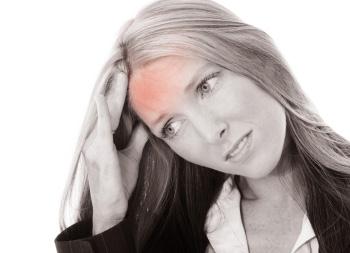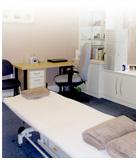Dealing with Stress
Stress is not necessarily a bad thing, despite its generally negative bad image.
It is an inescapable part of life, being human and a normal response to daily challenges.
Positive stress is the incentive to do our best, the buzz of excitement before an important event, or the element of risk that sustains ambition. A life without any challenge, with too little to do and too much time can be equally as stressful as too much work and too many deadlines. Too many negative “stressors” can have a damaging effect on the body’s systems.

The Stress Response
Stress is the body’s reaction to events or emotions that feel outside its conscious control.
There are many different lifestyle factors that contribute to stress:
- Dramatic personal lifestyle changes, birth, death, marriage.
- Rate of lifestyle, are you always in a hurry.
- Unresolved life traumas, which some people carry forever.
- Bad eating habits and patterns.
- Bullying.
- Lack of exercise & energy. Exercise reduces stress levels.
Adrenalin is the hormone most associated with stress. If we suffer from prolonged stress levels, this will eventually affect our health.
Constant raised levels of adrenalin will send the body into a state of imbalance.
This doesn’t happen quickly, it takes time, and the body adapts to the changes without you being aware of the effects.
Stress affects you in three stages:
Stage 1: The Alarm Reaction
The body experiences a threat…
- The brain and nervous system stimulate the hormone adrenalin to be released into the body’s systems.
- The body prepares to run away, or stay and fight.
The fight or flight response:
- The heart beats very fast, increasing the oxygen to the muscles which contract, ready to fight or flee.
- The spleen contracts, increasing red blood cell production and increased clotting cells, in case of injury.
- Blood moves to the large muscles for improved mobility and strength.
- The pupils dilate, to improve eyesight.
- Perspiration is activated to keep you cool.
- Digestive, reproductive and urinary systems close down because they are not needed.
- The liver releases more sugar into the muscles for increased energy.
The body is in a state of “Red Alert”.
This is fine if the body returns to a normal state, but constant stress and increased adrenalin levels do not allow the body to recuperate.
Repeated alarm reactions can lead to minor ailments and symptoms including:
- Racing heart & palpitations.
- Diarrhoea.
- Breathlessness.
- Disturbed sleep patterns.
- Head aches.
- Sweating.
- Trembling.
- Churning stomach.
- Dry mouth.
- Stiff, aching neck.
Sound familiar? Then read on...
These are not life threatening, but the body still senses all is not well.
At this point, the body passes into the next stage…
Stage 2: Resistance
Stress levels remain high and hormones continue to circulate in the bloodstream.

The body stays in the alarm stage, although the threat has now gone.
There is a heavy demand on the circulatory system and adrenal glands, which produce adrenalin, the stress hormone.
The body is now maintaining a state of “balanced imbalance” where the body copes with a state of continued stress, causing:
- Eventual draining of energy.
- Under functioning of organs.
- Under nourishment of cells.
If this state is not relieved with adequate recuperation, symptoms of disease will begin to manifest. These may include:
- Chest pains.
- Depression.
- Fears and phobias.
- Alcoholism.
- Colds and flu.
- Migraine and headaches.
- Anxiety.
- High blood pressure.
- Loss of libido.
- Eczema or dermatitis
- Abdominal pain.
If these symptoms persist, it will lead to the next stage:
Stage 3: Exhaustion
If stage 2 continues for long enough, major organs are weakened and their functions compromised.
Cells begin to die as their healthy environment has changed and cannot be returned and maintained.
The cells and organs have adapted to the change.
The symptoms have become chronic and finally degenerative.
More serious illnesses manifest at this stage:
- Colitis or crohns disease.
- Heart attacks.
- Infertility.
- Stroke.
Scary, isn’t it? But don’t despair…

Small changes to your lifestyle can alleviate such problems and allow you to enjoy a healthier, happier and longer life. Such as:
- Exercise.
- Learn to say “no” so that you don’t take too much on.
- Stop smoking, NOW!
- Remove the stressors!
- Make time for your loved ones, and make it “quality time.”
- Laugh!
- Cry when you need to.
- Drink more water!
- Take time out to rest and relax. You deserve it.
- Aim for 6-8 hours’ sleep each night.
- Talk about your worries.
- Plan your day to avoid rushing.
- Avoid skipping meals and eat a balanced diet.
- Leave your work “at work.”
- Prioritize and make the most efficient use of your time.
- BE HAPPY!
Look after yourself.
Caritas School
Looking for the Caritas School of Reflexology?
Therapists room

If you are a self employed holistic therapist and want to become part of the Caritas natural health team, we have two well equipped and beautifully designed rooms for hire.

